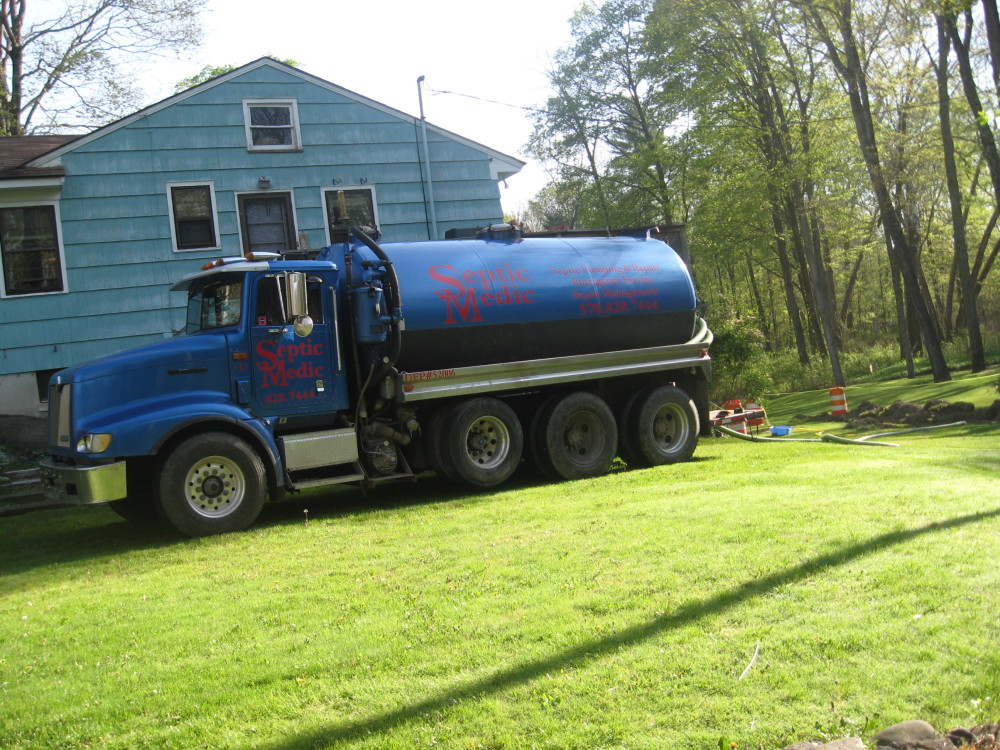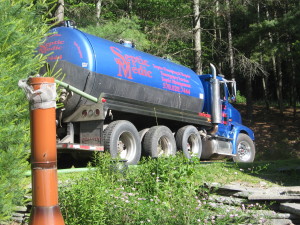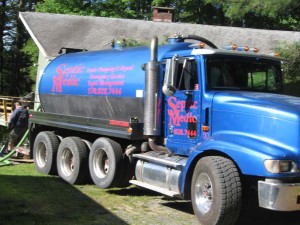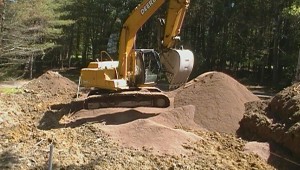Maintaining a healthy septic system can prevent the risk of septic back up and curb foul smells. Often when you smell a foul odor coming from your septic tank it is one of the first signs of a septic system problem. Worse, when there is heavy rain it can cause some components to your system to fail, which allows the smell to be more potent.
If your septic system is emitting a less-than-fresh odor simply because of a change in weather, specifically when there has been heavy rain, contact a professional septic system company to inspect and perform maintenance on your septic tank or leach field.
Why do septic tanks smell when it rains?
When it rains, the air becomes heavy and doesn’t allow for proper release of methane gases through your vent. As a result, the gases stay low to the ground with the atmospheric pressure, which results in a foul smell. If you have a loose toilet gas ring somewhere in your home, the added pressure from the rain can push these gases through into the house resulting in a bad smell. Even the tiniest hole can allow methane gases to leak.
Can a septic drain field flood from too much rain?
When you experience heavy rains the ground becomes saturated, which, in turn, impacts your drain field. A saturated drain field can create a number of problems for your septic system. Heavy rains result in a rise of the liquid level in your septic tank, which increases back-pressure on gases in the tank. These gases have nowhere to go but into the drain, vent, and waste system in your home. The result is a foul smell caused by a flooded drain field.

How do I get rid of septic tank smells?
Septic odors often are caused by gases in the system. You can do a number of things to prevent or eliminate a bad smell coming from your septic tank.
- Run water through your drains frequently. Typically, houses with more than one bathroom suffer from septic smells more often when it rains because one of the bathrooms is used less often. By running water in all your sinks, showers, toilets, and drains every couple of months, you can prevent this kind of issue.
- Septic System Pumping & Tank Clean Out
- Contact a professional to perform a soil and percolation test in the leach field.
Septic Medic is located in Dingmans Ferry, PA serving Delaware Township and all areas of Pike County. Dealing with a foul smelling septic tank or drain field early is key to preventing costly damages.
Septic Emergency? Contact us immediately at 570-828-7444
Additional Septic Services include:



 Septic tanks serve a purpose that is not always apparent to those who live in highly populated or densely populated areas. Neighborhoods and homes that are located in these areas often have the benefits of sewer systems that are able to flush away and eliminate any waste water. But what about homes that are in less populated regions, or don’t live in a part of a town or city that offers a sewer line connection to their home or property? This is where septic tanks come into play; a homeowner with a septic tank, however, needs to be aware of some septic problems that may crop up, especially if regular maintenance and check-ups are not performed.
Septic tanks serve a purpose that is not always apparent to those who live in highly populated or densely populated areas. Neighborhoods and homes that are located in these areas often have the benefits of sewer systems that are able to flush away and eliminate any waste water. But what about homes that are in less populated regions, or don’t live in a part of a town or city that offers a sewer line connection to their home or property? This is where septic tanks come into play; a homeowner with a septic tank, however, needs to be aware of some septic problems that may crop up, especially if regular maintenance and check-ups are not performed.

